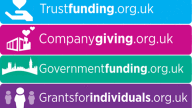4 things to think about before starting a fixed term project
Failure has a lot to do with the beginning of the project
Whether it is funded research or you are turning an idea into a plan for your organisation, a lot goes into planning and executing a successful project. OurDesigning and Managing Fixed Term projects trainer shares a few expert tips to help you on your way:
Think about the barriers to success
Research into why projects fail show that, in a lot of cases, failure has a lot to do with the beginning of the project and how it is set up before the work actually ‘starts.’ The best way to address this issue is to think about projects you’ve worked on before and ask ‘what were the barriers to success?’ Was it lack of commitment, poor communication or did the plan go way over-budget? Whatever it is, once you have identified, based on your experience, barriers to success, you can take action to avoid them occurring on your next project.
Make sure you are limiting stress
As a project manager, what are the things you can do to minimise stress for everyone involved in the project? There are certain frameworks to follow that’ll take you through a step-by-step approach, alleviating some strain as it gives you something to guide the process. During the course I will explore a 5 stage project process which will make the course of the project run smoothly. As well as this, I will be sharing 3 different planning tools. When you have chosen the one that works best for you and your type of project you’ll be able to increase your chances of success. Another big part of limiting the strain of the project is to ensure you are managing stakeholder expectations at different stages of the project, along with managing risk.
Use other people’s personal experience as well as your own
One of the biggest helps when starting a new project, and one which people often forget, is to share and learn from other people who’ve had a similar experience to you. It may be someone who has worked on a similar project and will be able to share the best way around the difficulties you may come across, or maybe someone in your organisation has been able to deliver a project on-time and on budget whilst working with difficult people. Whatever it is, there is a lot to be gained from sharing experiences with others.
Get things clear in your head
It may seem obvious but a lot of project managers start work without having clear objectives about what they’re trying to achieve and how. Here are a few questions to ask yourself, minus any project jargon to get the ball rolling:
- What are you doing?
- What are you going to do?
- What are you going to have at the end of it?
- What benefits will it lead to?
- How are you going to do it?
- When are you going to do it?
